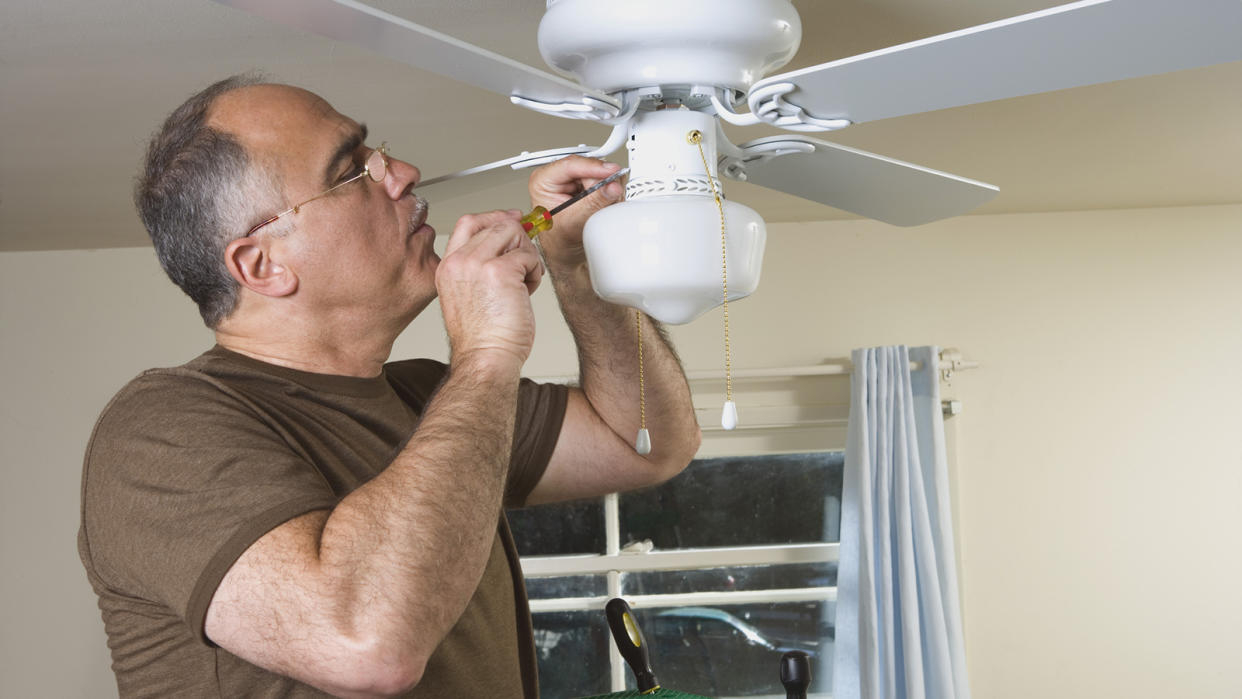Can Your Ceiling Fan Direction Impact Energy Costs?

Most people know that a ceiling fan's blades rotate to circulate air throughout the room, but few people stop to consider the direction their ceiling fan spins. But does ceiling fan direction actually matter?
Ceiling Fan Basics
A ceiling fan can help you save on air conditioning costs in the summer months by circulating air around a room to create a wind chill effect. Rather than cooling the room, a ceiling fan encourages perspiration to evaporate, so it's not effective unless you're actually in the room.
Ceiling fans are cheaper and use less energy than an air conditioner, making them a cost-effective way to control your home's temperature.
Why the Right Ceiling Fan Direction Matters
Did you know you can use your ceiling fan year-round? A ceiling fan can create an updraft (moves air upward) or a downdraft (moves air downward).
Make sure your ceiling fan blades spin counterclockwise in the summer, so you can feel cool air. This creates a downdraft, which should feel like a cool breeze (not as cool as AC, but cooler than nothing at all).
To circulate warm air around a room in the winter, switch your ceiling fan direction to clockwise. When the blades spin clockwise, they create an updraft, moving warm air at the top of the room and helping it circulate throughout the room.
How to Change Ceiling Fan Direction
Most ceiling fans create a downdraft by default. So, you probably don't need to change the direction of the blades unless you want to use your ceiling fan in the winter.
To change your ceiling fan's direction, first make sure the ceiling fan is powered off. If your fan has a pull switch, check the fan's motor housing for a ceiling fan direction switch. Simply toggle the switch to change the ceiling fan direction.
If your fan has a remote control, you may be able to change its direction by pressing and holding the fan button. Check your ceiling fan's manual and follow the manufacturer's directions.
Original article: Can Your Ceiling Fan Direction Impact Energy Costs?
Copyright © 2024 HowStuffWorks, a division of InfoSpace Holdings, LLC, a System1 Company


